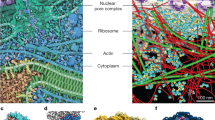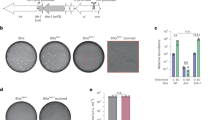Abstract
THE discovery of the fact that the products of cell death can cause cell-division in lymphocytes and other cells of the human body has given rise to a strong suspicion that these substances may be necessary for any form of cell-reproduction to occur. It has been already demonstrated by Fantham and Ross that Amoeba coli can be caused to divide through many generations by means of auxetics, and Drs. Ross and Cropper have shown that induced cell-reproduction will occur in the ova of Ascaris megalocephala if the eggs are mixed with a solution containing auxetics and incubated. It is important, therefore, for confirmation to come from other sources. Some time ago I was fortunate enough to discover a new variety of Polytoma, differing considerably from P. uvella in many respects, but chiefly in the fact that the new variety formed spores in the late autumn, which did not develop until the following spring. A full account of the new organism is in course of preparation for publication.
This is a preview of subscription content, access via your institution
Access options
Subscribe to this journal
Receive 51 print issues and online access
$199.00 per year
only $3.90 per issue
Buy this article
- Purchase on Springer Link
- Instant access to full article PDF
Prices may be subject to local taxes which are calculated during checkout
Similar content being viewed by others
Author information
Authors and Affiliations
Rights and permissions
About this article
Cite this article
DREW, A. Induced Cell-reproduction in the Protozoa. Nature 90, 673–674 (1913). https://doi.org/10.1038/090673c0
Issue Date:
DOI: https://doi.org/10.1038/090673c0
Comments
By submitting a comment you agree to abide by our Terms and Community Guidelines. If you find something abusive or that does not comply with our terms or guidelines please flag it as inappropriate.



